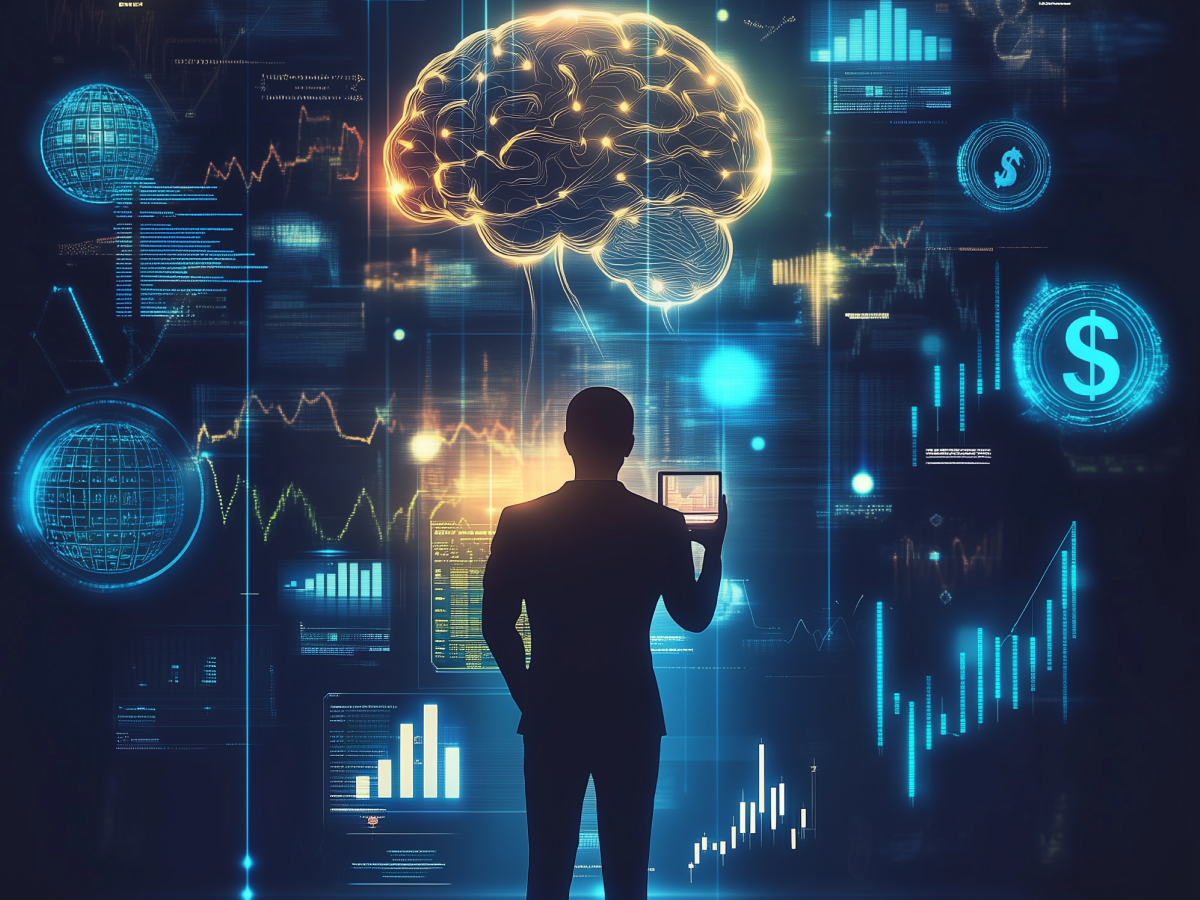AI is powerful, but it can’t replace human creativity and emotional intelligence
AI is great at finding patterns, processing data, and making decisions based on past behaviors. AI is not creative. It doesn’t innovate. It doesn’t understand human emotions. And in B2B marketing, creativity and emotional intelligence make the difference between being noticed and being forgotten.
Right now, AI is making marketing more efficient. It automates repetitive tasks, analyzes customer data, and personalizes outreach at scale. This is useful. But when it comes to understanding what makes people tick—what actually moves them to trust a brand or buy from a company—AI falls short. Emotional intelligence is not something you can code into an algorithm. It’s what lets a human marketer recognize a buyer’s concerns, understand their needs, and craft messages that connect on a deeper level.
Great marketing is about storytelling. AI can generate content, but it doesn’t know how to tell a compelling story that builds trust and credibility. It can predict what people might respond to, but it can’t create something truly new. That’s where humans win every time. AI should be a tool to augment human work, not replace it.
AI is being misused and it’s hurting marketing
The biggest mistake businesses are making with AI today? Using it to flood people with low-quality content. If you’ve received a cold LinkedIn message that sounds robotic, or an email packed with generic buzzwords, you know exactly what I’m talking about.
Too many companies are using AI to generate mass-produced marketing—spam emails, templated outreach, and clickbait articles that add zero value. This isn’t innovation. It’s noise and customers are tuning it out.
AI should be used to make marketing smarter, not just faster. Instead of automating quantity, businesses should focus on improving quality—using AI to analyze customer behavior, identify trends, and refine messaging. The companies that get this right will stand out. The ones that keep pumping out AI-generated fluff will disappear into the background.
The human element is more important than ever in B2B marketing
B2B buyers aren’t only looking for a product. They’re looking for confidence. And confidence comes from trust. You don’t get trust by sending automated emails. You get it by showing you understand your customers, their challenges, and their goals.
Buyers now complete 70% of their decision-making process before ever talking to a salesperson. That means your marketing has to do the heavy lifting. If you’re not top-of-mind when they’re researching, you won’t even make it onto their shortlist.
What gets you there? Thought leadership. Engaging, insightful content that proves you understand their industry and can solve their problems. AI can help gather data, but it takes a human mind to turn that data into meaningful insights. Buyers don’t remember generic content. They remember brands that help them think differently.
There’s science behind this. Studies show that emotion plays a huge role in decision-making. Research from The Jolt Effect found that fear of making the wrong decision (FOMU—Fear of Messing Up) is one of the biggest barriers to B2B purchases. SBI research goes even further: it found that how a buying experience makes someone feel is more important than the actual product they select.
“If your marketing isn’t emotionally engaging, you’re losing deals before they even start.”
AI should support humans, not replace them
The smart way to use AI? Let it handle the boring stuff. AI is amazing at crunching numbers, finding patterns, and optimizing processes. Use it to mine data, automate workflows, and track campaign performance. This frees up your marketing team to focus on what really matters—creativity, storytelling, and building relationships.
Here’s where AI adds real value:
- Identifying customer insights – AI can analyze data at scale to find patterns humans might miss.
- Improving targeting – AI can group customers based on shared behaviors, making outreach more relevant.
- Automating workflows – AI can streamline marketing processes so teams spend less time on admin work.
- Tracking engagement – AI can go beyond clicks and opens, showing which content actually drives conversions.
What AI shouldn’t do is replace human thinking. AI-generated content is a shortcut, and shortcuts rarely lead to great results. The companies that use AI as a support system—rather than a replacement—will be the ones that win.
Balance is the key to long-term success in B2B marketing
Too much AI, and your marketing feels robotic. Too little, and you’re wasting time on tasks that should be automated. The companies that strike the right balance—leveraging AI for efficiency while keeping human creativity at the core—will dominate the market.
There’s real science behind this. Cognitive neuroscientist Carmen Simon ran an experiment where people were shown three types of presentations:
- Designed and presented by a human.
- Designed by AI, but presented by a human.
- Fully designed and presented by AI.
The group that saw the human-led presentation remembered it best. Why? Because humans connect with stories, emotions, and nuance. AI can’t replicate that.
This is the future of B2B marketing: AI for speed, humans for impact. Use AI to sharpen your strategy, automate workflows, and extract insights. But when it comes to creativity, messaging, and building relationships—keep humans in control.
“Because at the end of the day, people buy from people they trust. And trust isn’t built by algorithms. It’s built by understanding, empathy, and real human connection.”
Key executive takeaways
- Optimize AI efficiency: Leverage AI to automate routine tasks, data analysis, and segmentation, allowing human teams to concentrate on creative strategy and nuanced customer engagement. This balance maximizes operational efficiency without sacrificing quality.
- Enhance human-centric engagement: Prioritize human-driven content and personalized storytelling to build trust and emotional connections with buyers. Decision-makers should invest in thought leadership that differentiates their brand in a crowded marketplace.
- Elevate customer experience: Recognize that up to 70% of the buyer journey occurs before direct vendor interaction. Leaders must ensure that early touchpoints are engaging and memorable to secure a top-of-mind presence.
- Adopt a hybrid strategy: Integrate the precision of AI with the innovative capabilities of human insight. This approach not only drives efficiency but also builds strong, trust-based relationships that are critical for long-term growth.





